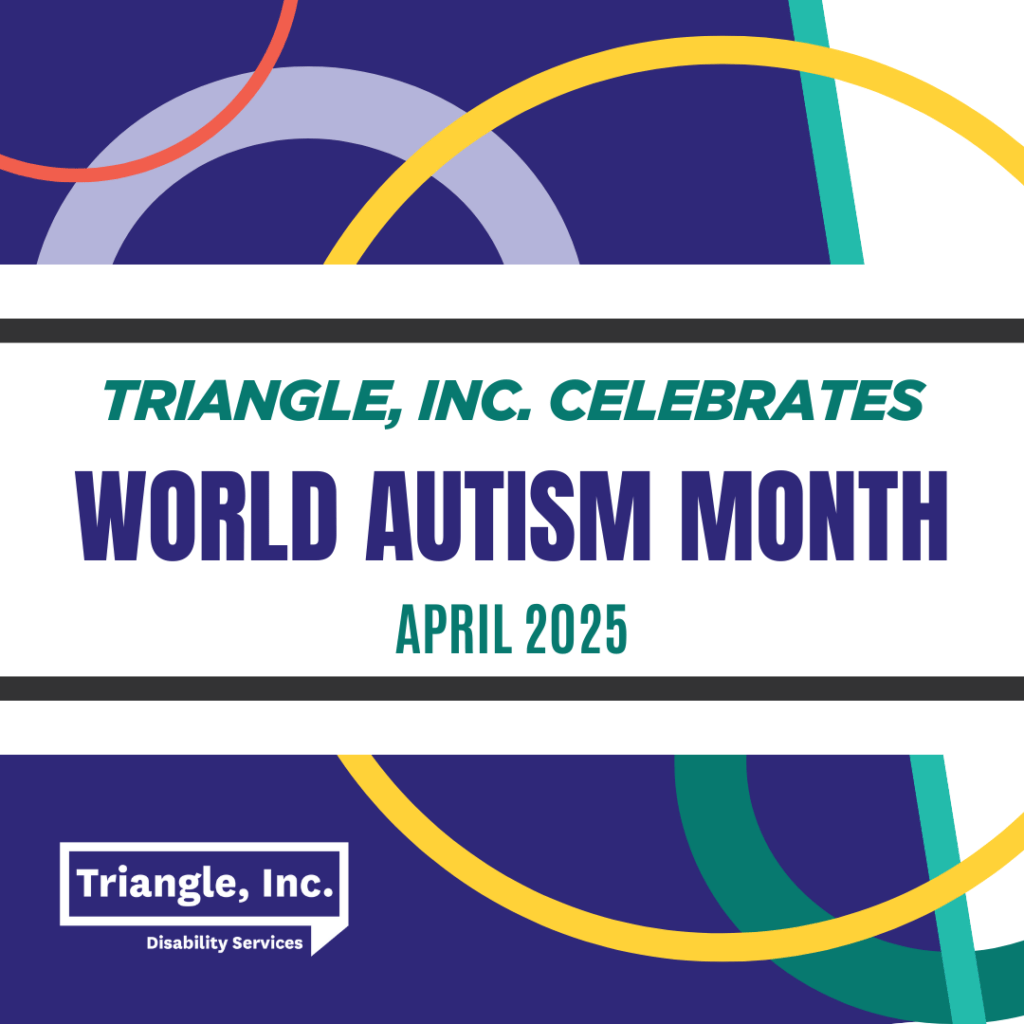Celebrating World Autism Month
This is a special post written by Charles Warren, Curriculum Developer at Triangle. Charlie is also a member of Triangle’s Racial Equity Committee (REC) and Disability Justice Task Force (DJTF). As part of our commitment to the work of the REC and DJTF, we will be sharing more information with you on subjects related to racial equity and disability justice. This post continues our series dedicated to calling attention to the contributions of people with disabilities to American history.

Happy World Autism Month!
This year, we are glad to celebrate April as World Autism Month, and shine a light on the autistic community! There are a plethora of autistic voices and creators, and more opportunities to learn about the diversity of autistic experiences than ever before. Learning from autistic people about autistic experiences is a great way to celebrate!
It’s been 55 years since the first Autism Awareness Month was created in April of 1970. In recent years, the differences between autism awareness and autism acceptance have been at the center of the conversation in April. The dialogues have explored which term is better suited to the moment. To my mind, we will always need both. Awareness and acceptance work hand in hand and are part of a continuous process all disability communities must engage with. One of my favorite real-world examples of an active awareness and acceptance campaign is the Hidden Disabilities Sunflower Lanyard project. Launched in 2016, wearing the green sunflower lanyard has become an accepted, and low-profile, way to identify yourself as a person with an invisible disability in contexts like airports. If you are a person with an invisible disability, I cannot recommend enough trying this out for your next trip. It makes accessing assistance easier and less complicated. And you’ll be contributing to the ongoing awareness and acceptance work for the whole community. Click here to visit their website!
The overall disability community is large, and the tremendous diversity of disabilities means the experiences of individual disability groups are often not well known. So, whether you have high, low, or medium support needs, are hyperlexic or non-speaking, whether you have co-occurring disabilities, whether you prefer identify-first language or something else, have a great month! You belong to a beautiful community.